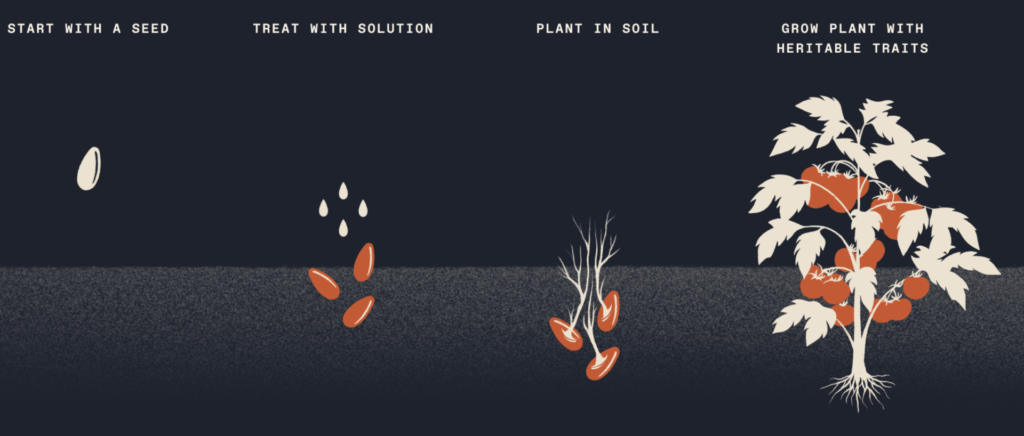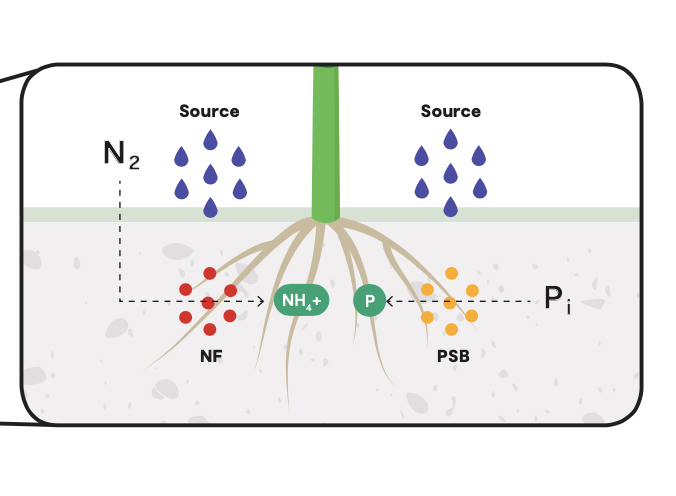Sound Agriculture, the self-described “bio-inspired” crop inputs company, has raised $45 million in a Series C-extension round led by Bayer‘s investment arm Leaps by Bayer. Life sciences investor Northpond Ventures also joined the round as a new backer alongside existing investors Cavallo Ventures, Fall Line Capital, S2G Ventures, and Syngenta Group Ventures.
Sound Agriculture will use the funding to to boost sales and marketing capabilities around its crop input Source and its on-demand plant breeding service.
The Emeryville, California-based startup launched Source in 2019 to enhance the performance of traditional fertilizers. Used on around 300,000 acres, Source can both increase yields and reduce nitrogen usage by up to 50 pounds per acre – roughly 30%, according to CEO Adam Litle.
Considering nitrogen costs have increased by as much as 70% in the past year, adopting Source could result in serious savings for farmers, who see at least half of their overall spend go to fertilizers, he said.
“For some farmers, using Source is really about maximizing their yield. So they might not change their fertilizer practices, but they apply Source to make the nitrogen and phosphorus they’re applying through the year more available to their crops in the soil,” Litle told AFN.
“For others, Source allows them to scale back their use of nitrogen, [saving] them money – but also saving the planet and local communities’ water supplies.”
Sound Agriculture sells Source through a combination of dealer networks, independent agents, and retailers. It will add extra boots on the ground and marketing resources to promote a product that Litle says has been “under the radar compared to others.”
Some of those “others” might include the microbe-focused biologicals offered by the likes of Pivot Bio and Anuvia Plant Nutrients that have raised huge rounds in recent months.
Unlike these products, Source is not strictly a biological input because it uses a chemical mode of action. But that mode of action stimulates the soil microbiome around a crop’s roots and enables it to better manufacture and absorb fertilizer at the root zone.
“In a modern field, the beneficial microbes in the soil that do nitrogen fixation are effectively turned off due to the synthetic inputs used,” Sound Agriculture chief technology officer Travis Bayer told AFN after the startup’s $22 million Series C round last year.
“Our product acts as a signal to turn them back on. It’s a natural chemistry that excites the [microbes] to produce more nitrogen; it mimics a signal to establish symbiosis.”
‘Rapid epigenetics’
In the discovery of Source and research into the biochemical pathways of crop cells, Sound developed an R&D process using what it calls “rapid epigenetics.” It is now putting this to task on other problems for clients in the form of an on-demand plant breeding service.
According to the US Centers for Disease Control and Prevention, epigenetics is “the study of how your behaviors and environment can cause changes that affect the way your genes work.”
Unlike genetic modification, “epigenetic changes are reversible and do not change your DNA sequence, but they can change how your body reads a DNA sequence.”

Sound works with food and agriculture companies that are looking for specific characteristics in crops to improve their sustainability, nutrition, appearance, and flavor profiles, and will take a share of the royalties of any resulting sales.
One example is reducing the browning and bruising of potatoes by improving the plant’s internal architecture – which, according to Litle, can reduce food waste by 15%.
Sound is also working on new flavor and visual combinations for produce that could make them more eye-catching for consumers; Litle referenced the rosé blush raspberries and strawberries that Driscoll’s released in 2019 as an example of how dramatically sales can increase on the back of such innovations.
By using its process to dial-up the expression of certain genes externally, Sound Agriculture can both treat a crop, and breed breed from it. The startup claims it can breed crops with desirable traits 10 times faster than gene-editing tools like Crispr.
Sound Agriculture is certainly not a new kid on the block. Previously called Asilomar Bio, it has raised multiple rounds from investors since founding in 2012 and been through a few different iterations before landing on its current course. It got a new name and leadership, bringing on Litle as CEO last year from Granular, the ag software company acquired by DuPont in 2017. In a good sign for the company’s progression, most of its investors have returned to later rounds. Sound Agriculture has also partnered with one of its investors, Syngenta, to market Source in China and help reduce nitrogen use in the country’s farming industry.





